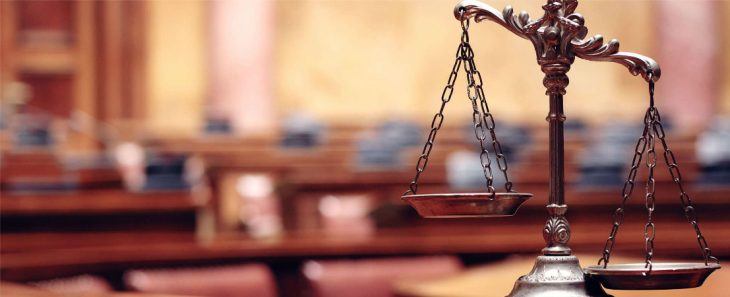Special master: Arkansas tort reform measure could be disqualified
by September 28, 2016 4:16 pm 304 views

A special master tasked with making a report in a lawsuit on a proposed medical tort reform amendment wrote Wednesday (Sept. 28) that all its petition signatures potentially could be disqualified, or enough could be disqualified to knock the measure off the ballot.
The Arkansas Supreme Court will use the report to help it decide the case before the Nov. 8 election.
Retired judge J.W. Looney was appointed by the Court to serve as special master in the suit, brought by five Arkansans and the Committee to Protect AR Families against Secretary of State Mark Martin. The petitioners had alleged that the amendment’s sponsors had failed to comply with canvasser certification laws and mandatory filing requirements.
Looney wrote that potentially all signatures could be disqualified because the sponsor had failed to certify to Martin’s office that criminal background checks had been completed on each paid canvasser – a potential material defect.
The proposed amendment will appear on the ballot as Issue 4. It would limit, in medical lawsuits, attorney contingency fees to 33 1/3% of judgments after expenses and direct the Legislature to set non-economic damage limits of at least $250,000. Its primary funders have been nursing homes and the Arkansas Health Care Association, the group that represents nursing homes.
Under the Constitution, the sponsors, Health Care Access for Arkansans, were required to submit 84,859 signatures, or 10% of the number of voters in the governor’s race in the previous election. They submitted 131,687, of which the secretary culled 13,321 and refused to certify an additional 25,639, leaving 93,102. A professional canvassing organization, 3.0 LLC, collected the signatures.
Looney wrote that 1,825 signatures collected by paid canvassers before their names were submitted to Martin’s office should be disqualified, while another 47 signatures would be disqualified because of the sponsor’s failure to maintain statements of eligibility on six canvassers. Looney wrote that the use of third party criminal background reports by the sponsor, if considered a violation of the law, would disallow 10,764 signatures – enough to remove it from the ballot.
Looney also found that 704 uncounted signatures should have been counted and up to 668 signatures could also be added.
Chase Dugger, executive director of Health Care Access for Arkansans, said in a statement, “We worked carefully to honor the secretary of state’s process. The secretary of state found that we had complied with the process and certified more than 93,000 signatures. We are confident that the Supreme Court will respect the will of the people and keep Issue 4 on the ballot this November. Reforms like Issue 4 have been put in place in half the states across the nation and have led to greater access to doctors and better care. Arkansas doesn’t need to be left behind.”
Martha Deaver with the Committee to Protect AR Families said in a statement, “The corporate nursing home owners will stop at nothing in their quest for higher profits, including blatantly violating the law to try and pass a constitutional amendment to protect themselves. The special master’s report calls out the sponsor’s blatant disregard for the law when trying to amend our state’s constitution. I want to thank the Supreme Court of Arkansas and Judge Looney for allowing us the forum to exercise our constitutional rights as Arkansans.”
A poll published Sept. 27 by Talk Business & Politics and Hendrix College found many Arkansans have not yet formed an opinion on the issue. In the poll, 27% supported the measure, 24% opposed it, and 49% didn’t know how they stood.
